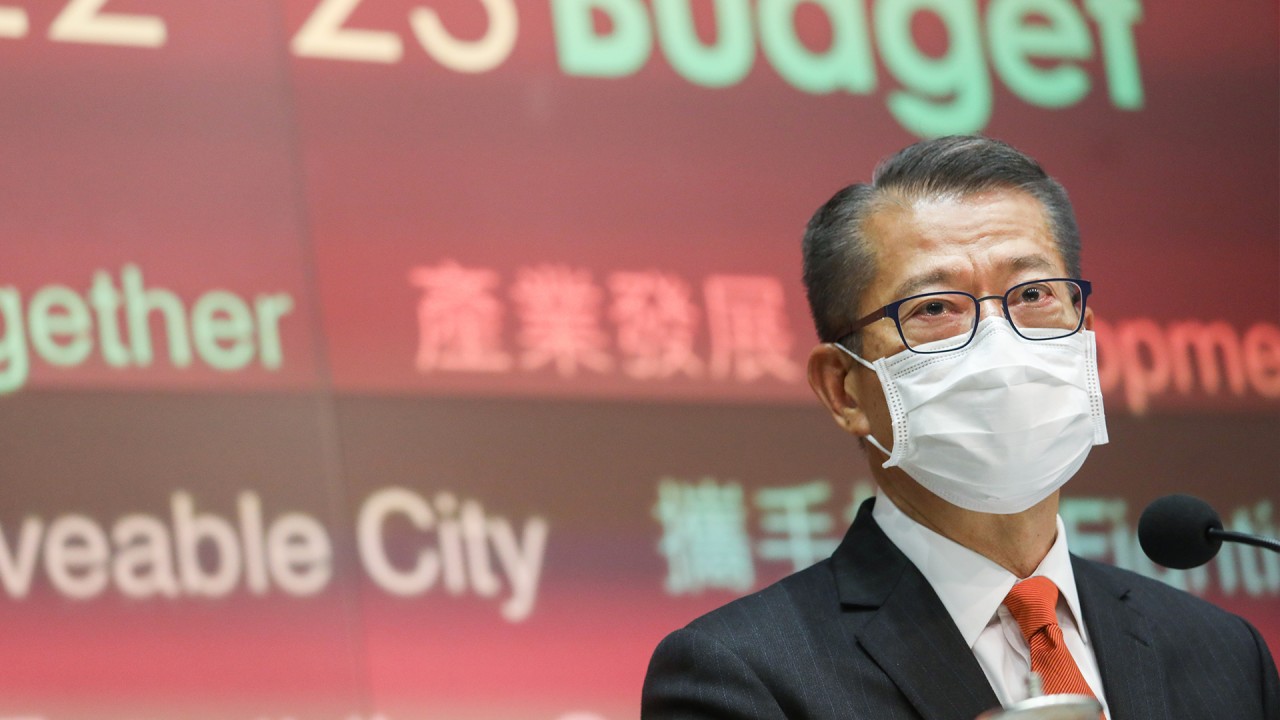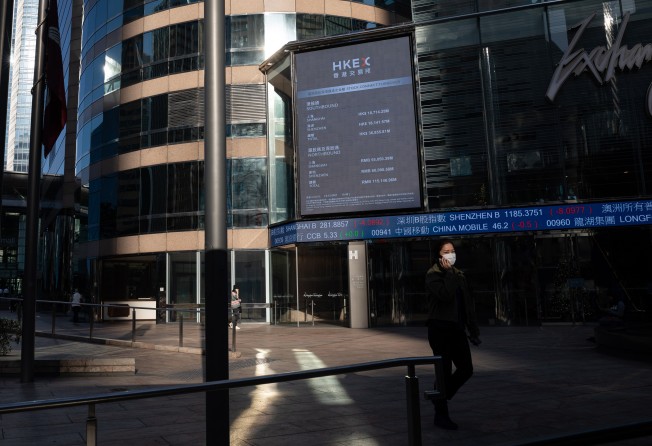
04:18
Hong Kong budget earmarks HK$170 billion in fight against Covid-19

The Hong Kong government has proposed more listing reforms to help pre-profit or pre-revenue start-ups raise funds in the city.
In what may well be its largest such reforms since 2018, the government is also considering introducing more measures to support yuan-denominated shares, green finance and family offices, Financial Secretary Paul Chan Mo-po said in his last budget speech for the current term on Wednesday.
“The Securities and Futures Commission [SFC] and [bourse operator] Hong Kong Exchanges and Clearing [HKEX] are reviewing the main board listing rules and, having due regard to the risks involved, examining the revision of the listing requirements to meet the fundraising needs of such enterprises,” Chan said.
The proposals could be seen as an extension of the listing reforms introduced in 2018, which allowed technology firms with multiple classes of voting rights and pre-revenue biotechnology firms to list in Hong Kong. As of the end of last month, 70 companies had listed in the city under the new regime, raising more than HK$570 billion (US$73 billion), almost half of all money raised, in the process. The reforms helped the city become the world’s second-largest biotechnology listing centre after Nasdaq.
The proposals put forward on Wednesday are aimed at further diversifying the product range available in the local capital markets. They are also needed to help the Hong Kong stock market, Asia’s third-largest market, bounce back after funds raised from new listings shrank by 17 per cent year on year last year, their first decline since 2017.
Some large technology firms required substantial capital for their research and development work, but did not qualify for a listing in Hong Kong as they failed to meet profit requirements in the city, Chan said.
Last month, the local stock market tightened its listing qualifications for the first time in nearly three decades. Companies seeking to raise funds on the main board must have earned at least HK$80 million in combined profits in the three years before listing, a 60 per cent increase from the previous requirement of HK$50 million.
Nicolas Aguzin, the CEO of HKEX, welcomed the proposals and said the bourse operator “continues to actively introduce new initiatives to enhance its world-class listing regime, develop its market infrastructure and expand its products and services to connect capital with the leading companies of today and tomorrow”.
The SFC and HKEX were in the early stages of studying how to allow these companies to list while “recognising the risks that arise in relation to businesses which have no or limited sales”, an SFC spokesman said.
The city also plans to introduce yuan share trading in Hong Kong by mainland Chinese investors who trade Hong Kong stocks through the stock connect schemes. It will waive stamp duty on market makers for such type of trading when the programme is introduced, Chan said.
To promote the bond market, the government will issue HK$15 billion of inflation‑linked retail bonds, or iBonds, and more than HK$35 billion of Silver Bonds in the next financial year for those aged 60 and over.
After issuing more than US$7 billion worth of green bonds since the launch of its green bond programme in 2018, the government will issue another US$4.5 billion worth of such bonds this year, Chan said. Green bonds can only be used for projects that help reduce pollution, cut down energy or water use and the mitigation of climate change.
The government last month announced the city’s first retail green bonds worth up to HK$6 billion, which will be issued starting March 1. Another HK$10 billion of such bonds will be issued in the next financial year starting from April, Chan said.
The financial secretary also plans to launch a three-year scheme to nurture green and sustainable finance talent, providing subsidies to encourage practitioners to receive training and relevant professional qualifications in the field.
“This is a good move to incentivise commercial sectors to invest in ESG and move towards Hong Kong’s goal of achieving zero-carbon emissions by 2050,” said Deloitte China tax partner Polly Wan.
While the government’s scheme to help build capacity was extremely critical, it was also important to make sure that the curriculum standards were high and relevant to meet the needs of employers, said Mary Leung, the CFA Institute’s head of advocacy in Asia-Pacific.
Tax incentives and other measures proposed to promote yuan trading could help Hong Kong to become a family office hub, said Dixon Wong, head of financial services and global head of family office at InvestHK.
Luanne Lim, the CEO of HSBC in Hong Kong, meanwhile, said the proposals could help the city further develop its capital markets and green finance capabilities, as well as helping the city to act as a leading offshore yuan trading centre.